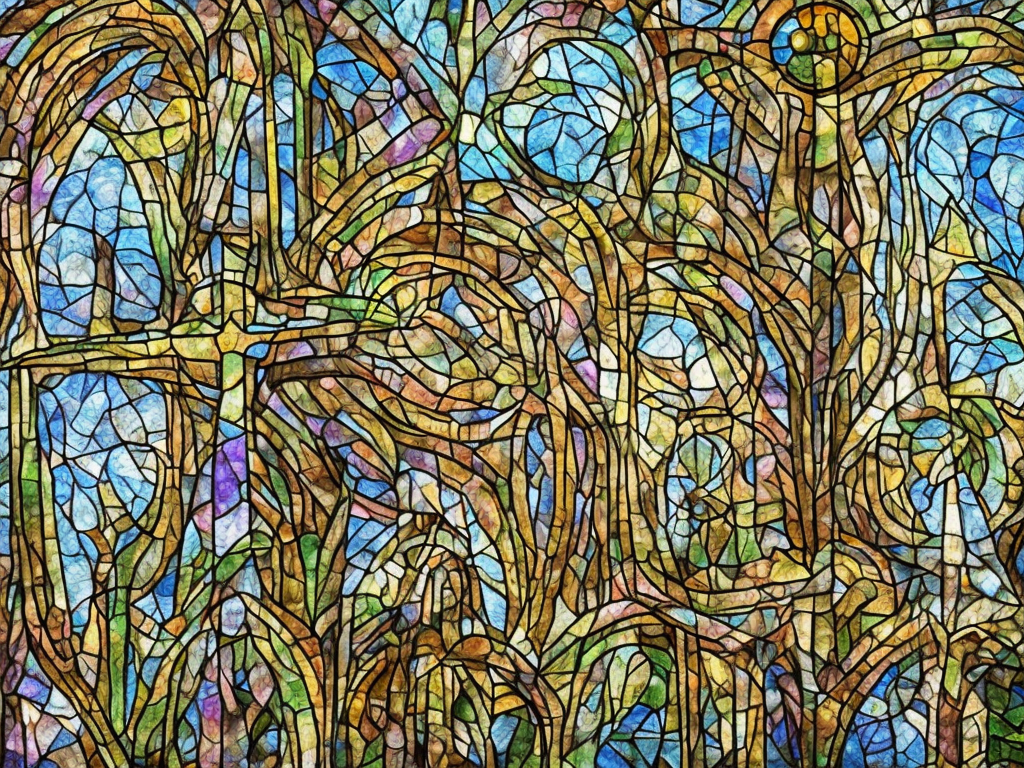
Christianity is the largest religion in the world with over 2 billion followers worldwide, a majority of which are either Catholics or Protestants. The two groups may both be Christians, but they have significant differences in how they practice their religion. These differences between the Catholic and Protestant denominations have led to conflict, wars and division in the past, but in recent times the differences have become less pronounced as members of both groups have developed a greater sense of religious tolerance and ecumenism.
The origins of the division date back to the Protestant Reformation, which began in the early 16th century. It was a movement that sought to reform the Catholic Church in Europe, which was perceived as being corrupt and politically powerful. The Protestant Reformation sparked a theological debate between those who believed in the Church's teachings and those who wanted to challenge its doctrines and practices. This debate led to the formation of Protestantism, a term derived from the protestant movement. On the other hand, those who supported the Church's teachings became known as Catholics.
One of the most significant differences between Catholicism and Protestantism is the authority of the church. Catholics believe that the Church, led by the Pope, is the ultimate authority on religious matters. This belief is based on the idea that Jesus Christ established the Church, and the Pope is the spiritual leader of the faith community. The Pope is revered as the highest authority for Catholics worldwide, and he is considered the bishop of Rome, responsible for interpreting the Bible and guiding the Church's faithful.
In contrast, Protestants reject the ultimate religious authority of the Pope and the Catholic Church. They believe that the Bible alone is the highest authority on religious matters. Protestants place a great emphasis on individual interpretation of the Bible, which they believe should be done without the need for church hierarchy or supervision.
Another significant difference between the two groups is the role of Mary, the mother of Jesus Christ. Catholics view Mary as the mother of God, led a sinless life, and was assumed into heaven in both body and soul at the end of her life. Mary is also venerated in Catholicism, meaning she is held in high esteem as a model of the faith and the mother of Jesus.
In Protestantism, however, Mary is not venerated, and her role is not nearly as significant in religious teachings. Protestants do not believe in the idea of the immaculate conception, meaning they reject the Catholic belief that Mary was born without original sin and thus was able to conceive Christ himself.
Furthermore, the practice of confession is done differently in both Catholic and Protestant churches. Catholics believe that priests have the power to grant absolution for sins that are confessed as part of the sacrament of penance. This means that penitents have to share their sins with a priest and can be assured of forgiveness by the Church. Protestants, on the other hand, practice confession as a direct conversation with God. Protestants believe in the power of God's forgiveness and the ability of every individual to seek it himself without having to confess to any human authority.
In terms of sacraments, both groups generally recognize the seven sacraments of the Catholic Church, including baptism, confirmation, the Eucharist, penance, anointing of the sick, holy orders, and matrimony. However, Protestants have diverged from Catholicism by practicing only two sacraments, baptism and the Eucharist. They believe in baptism as a symbolic expression of the believer's faith in Jesus Christ and the associated washing of sins. The Eucharist is seen as a symbolic representation of Christ's sacrifice on the cross. Protestants do not believe that the Eucharist is the physical representation of Christ's body and blood, as is believed by Catholics.
Another significant difference between the two groups is the interpretation of the Bible. Catholics and Protestants have their unique approach to interpreting the Bible's teachings. Catholics consider the Bible a part of the broader teachings of the Church and interpret it through the Church's teachings, tradition, and hierarchy. In contrast, Protestants believe that the Bible should be interpreted through individual conscience and the Holy Spirit's guidance.
Finally, the role of good works in salvation is distinct between the two denominations. Catholics believe that good works are an essential part of the salvation process. They believe that faith must be accompanied by works, and good works done in the name of faith can help secure salvation. Protestants, however, believe that salvation is a matter of faith alone, meaning that it is only necessary to have faith in Jesus Christ to attain salvation.
In conclusion, the differences between the Catholic and Protestant denominations go beyond surface-level practices, ideologies, and beliefs. These differences are deeply-rooted, doctrinal, and historical. Although the path towards greater religious unity has gained traction in modern times, it's difficult to overlook these fundamental differences that have historically caused rifts and conflicts in the growth of Christianity. Nonetheless, ecumenism and religious tolerance will continue to play an essential role in bridging the divide and promoting a culture of religious inclusivity.
 Self-Instruct
Self-Instruct